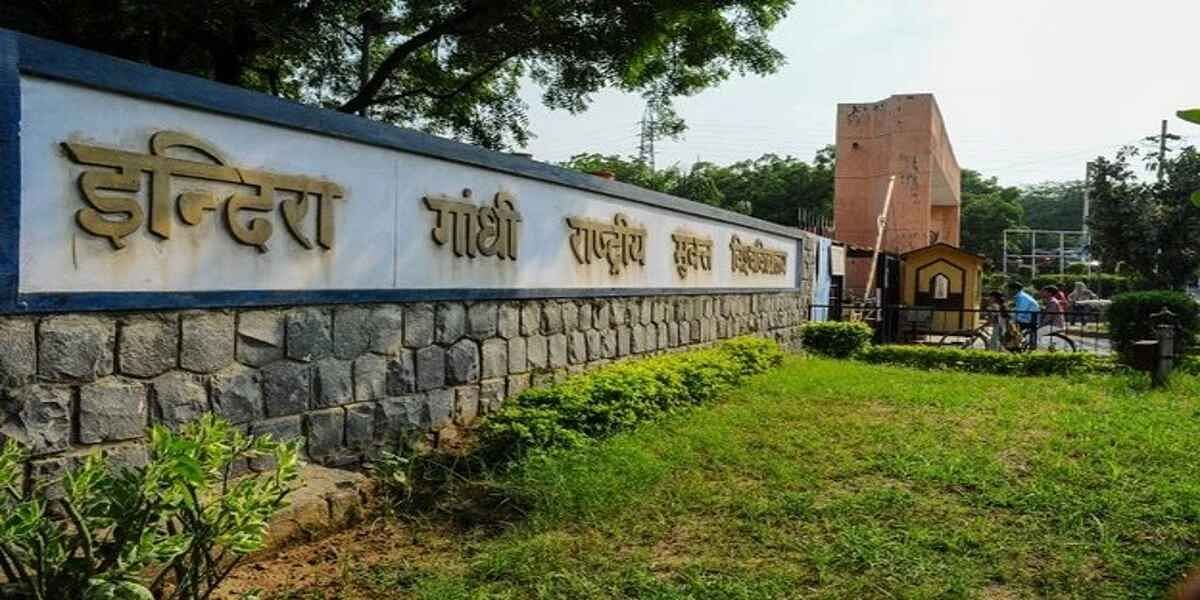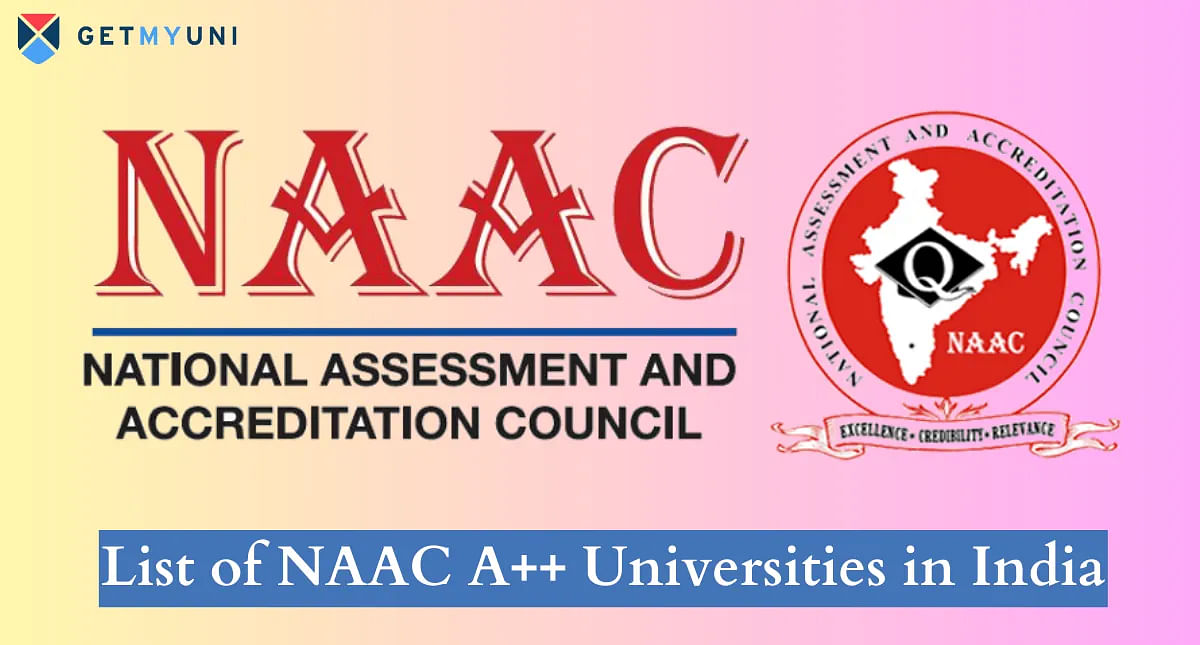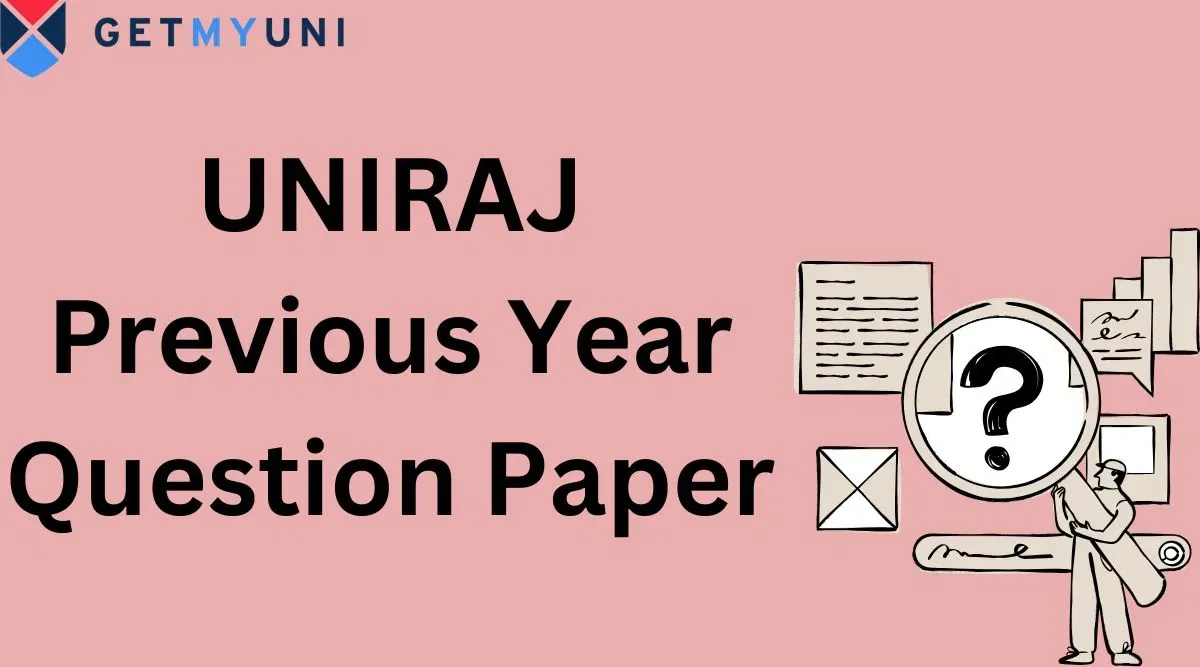There are various Journalism Courses after 12th that the candidates can opt for a better change and enhancement in their career. To name a few of the courses, Diploma or BA in Journalism, Broadcasting, etc.
When it comes to studying or pursuing a Journalism course after 12th in India, students need to be informed about India's best colleges and educational institutions. The accepted qualification for a journalism course in India is a 10th or 12th-grade completion certificate.
There are various Journalism courses after 12th that the candidates can pursue to enhance their careers and cover the basic fundamentals of journalism. The students have a long list of options to choose from part-time or full-time courses as per their choice and demand.
Also Read: Complete Listing of Courses after 12th
Journalism Courses in India after 12th
Generally, the age limit for a journalism course in our country is 21 years. However, any aspiring person can pursue journalism correspondence courses through distance education, and there is no age limit for it. Here are the journalism courses offered to someone who has completed the 12th standard in India.
| Course | Duration | Course Fee (INR) |
| BA Journalism | 3 Years | 30,000- 3 LPA |
| BA Journalism and Mass Communication | 3 Years | 20,000- 5 LPA |
| Bachelor of Mass Communication (BMC) | 3 Years | 50,000- 2 LPA |
| BA Mass Communication | 3 Years | 2,000- 5 LPA |
| BA Convergent Journalism | 3 Years | 2,000- 5 LPA |
| BA Mass Communication and Journalism (Hons) | 3 Years | 2,000- 5 LPA |
| BA Journalism (Hons) | 3 Years | 2,000- 5 LPA |
| B.Sc. Mass Communication and Journalism | 3 Years | 2,000- 5 LPA |
| B.Sc. Mass Communication, Advertising, and Journalism | 3 Years | 2,000- 5 LPA |
| B.Sc. Mass Communication | 3 Years | 1- 4 LPA |
| Bachelor in Media Science | 3 Years | 1- 4 LPA |
| Bachelor of Journalism | 3 Years | 30,000- 4.5 Lakhs |
BA Journalism
Bachelor of Arts in Journalism or BA (Journalism) is an undergraduate course that prepares students for a career in Media and Journalism, both print and electronic. Students who complete the Bachelor of Arts program in Journalism are skilled in various areas related to reporting, writing, journalism, editing, news presentation, news compilation, etc. The specializations offered in this course include Fundamentals of Journalism, History of Journalism, Language, Media Laws, Indian Constitution, and Development Psychology.
A Bachelor of Arts in Journalism helps individuals sharpen their storytelling skills. At the end of the course, students are expected to possess the ability to tell stories elegantly and write on various topics - entertainment, general or informative - a degree holder in BA Journalism is taught various theoretical and practical aspects.
- Eligible are those who have completed their 10+2 or an equivalent from a recognized institution in the country.
- The duration of the course is three years.
- The approximate fee range for the course is INR 30,000- 3 LPA.
Read More: BA Journalism
BA Journalism and Mass Communication
Bachelor of Arts in Journalism and Mass Communication or BA (Journalism and Mass Communication) is an undergraduate program that aims at providing students with holistic theoretical and practical knowledge regarding the fields of journalism and mass communication. It includes print journalism, media, advertising, television, radio, and various others, to name a few. The curriculum of the course is balanced and tailored to meet the necessities of every media.
Students develop strong communication skills, critical abilities, and analytical approaches. Acquiring a functional knowledge of the underlying principles regarding the field and recent emerging media industry trends is emphasized during this course.
- Eligible are those who have completed their 10+2 or an equivalent from a recognized institution in the country.
- The duration of the course is three years.
- The approximate fee range for the course is INR 2,000- 5 LPA.
Read More: BA Journalism and Mass Communication
Bachelor of Mass Communication (BMC)
Bachelor of Mass Communication or B.M.C is an undergraduate course that deals with the academic investigation of the different means individuals get information through to the mass audience. Mass Communication includes media information and processes such as the distribution of information, persuasion, and manipulation of the public.
Students who want to make a career in journalism, radio, television, filmmaking, online, public relations, advertising, event management, etc., can take this course.
- Eligible are those who have completed their 10+2 or an equivalent from a recognized institution in the country.
- The duration of the course is three years.
- The approximate fee range for the course is INR 50,000- 2 LPA.
Read More: BMC
BA Mass Communications
Bachelor of Arts in Mass Communications or BA Mass Communication aims to provide eligible candidates with a strong foundation in news media practices across different media platforms, an advanced understanding of news media and their role in society, and relevant media education by laying a strong foundation in art study.
This course deals with the study of constituents of mass media such as newspapers, cinema films, magazines, radio, and television, as a mechanism of imparting information to a mass audience and an academic knowledge of the distinct methods of mass correspondence by which people and elements exchange data on a mass scale.
- Eligible are those who have completed their 10+2 or an equivalent from a recognized institution.
- The duration of the course is three years.
- The approximate fee range for the course is INR 2,000- 5 LPA.
BA Convergent Journalism
Bachelor of Arts in Convergent Journalism or BA Convergent Journalism is an undergraduate mass communications course that deals with convergent journalism and tailors a story to fit into various forms of media. This course teaches you how to write appropriately for the web, print, Personal Digital Archiving screen, and broadcast.
- This course is job-oriented and may be provided on a part-time basis by some institutes.
- Eligible are those who have completed their 10+2 or an equivalent from a recognized institution.
- The duration of the course is three years.
- The approximate fee range for the course is INR 2,000- 5 LPA.
BA Mass Communication and Journalism (Hons)
Bachelor of Arts Honours in Mass Communication and Journalism or BA (Hons) in Mass Communication and Journalism deals with the study of mass media such as newspapers, television, magazines, radio, and other forms to impart general awareness among the people through print and electronic media. It is an academic investigation of various means of mass communication and how to reach out to the audience on a large scale.
- The course involves reading, writing, photography, editing, etc.
- Eligible are those who have completed their 10+2 or an equivalent from a recognized institution in the country.
- The duration of the course is three years.
- The approximate fee range for the course is INR 1,000- 2 LPA.
BA Hindi Journalism (Hons)
Bachelor of Arts in Hindi Journalism or BA (Hons.) (Hindi Journalism) deals with convergent journalism and tailors a story to fit into various forms of media. This course teaches you how to write appropriately for the web, print, Personal Digital Archiving screen, and broadcast.
- The course is taken in Hindi. This course is job-oriented and may be provided on a part-time basis by some institutes.
- Eligible are those who have completed their 10+2 or an equivalent from a recognized institution.
- The duration of the course is three years.
B.Sc. Mass Communication and Journalism
Bachelor of Science in Mass Communication and Journalism or B.Sc. (Mass Communications and Journalism) is an undergraduate course that provides basic journalistic skills in different mass media. The course aims to equip the students with the latest trends in media issues and media research to strengthen the core of various technologies involved in mass media such as print, radio, television, computer applications, software, internet, and others, to name a few.
- After the completion of this course, students can work with reputed employers or venture into freelancing.
- Eligible are those who have completed their 10+2 or an equivalent from a recognized institution of the country.
- The duration of the course is three years.
B.Sc. Mass Communication, Advertising, and Journalism
Bachelor of Science in Mass Communication and Journalism or B.Sc. (Mass Communications and Journalism) is an undergraduate course that provides basic journalistic skills in different mass media. The course aims to equip the students with the latest trends in media issues and media research to strengthen the core of various technologies involved in mass media such as print, radio, television, computer applications, software, internet, and others, to name a few.
- After the completion of this course, students can work with reputed employers or venture into freelancing.
- Eligible are those who have completed their 10+2 or an equivalent from a recognized institution of the country.
- The duration of the course is three years.
B.Sc. Mass Communication
The field of communication has gone through an immense change. There has been a sudden increase in the number of news channels, radio stations, and newspaper industries, thus leading to the extensive growth of opportunities in media. B.Sc. Mass Communication combines the dimensions of various fields of mass communication and allows aspirants to understand the intricacies of the field and polish their skills.
Bachelor of Science in Mass Communication calls for a sense of responsibility toward society. Students must do extensive research regarding any piece of information before revealing the news to the mass audience. They are expected to be dynamic and possess extraordinary communication skills.
- Eligible are those who have completed their 10+2 or an equivalent from a recognized institution in the country.
- The duration of the course is three years.
- The approximate fee range for the course is INR 1- 4 LPA.
Bachelor in Media Science
Bachelor's in Media Science or BMSc degree opens up new paths in jobs for people from different backgrounds. It is often related to reporters and journalists in newspapers, television (audio-visual), and radio. But that is not the only job that people with degrees in Mass Communication or Media Science do.
Success in the field of Media Science is highly dependent on the individual and their determination. What matters is the individual's dedication to doing well in a particular field. To work in the media sector, it is a necessity that one develops a portfolio of work and gains as much experience as possible. One can learn the ability to work with flexibility and fixed deadlines. The skill of teamwork is also developed.
- Eligible are those who have completed their 10+2 or an equivalent from a recognized institution in the country.
- The duration of the course is three years.
- The approximate fee range for the course is INR 1- 4 LPA.
Bachelor of Journalism
Bachelor of Journalism or B.J. is an undergraduate degree course in journalism and mass communication that candidates can pursue right after their Class 12. Bachelor of Journalism is a three years duration course. In this course, students are taught about various aspects of the media industry like research, reporting, writing, compiling, editing, and presenting the necessary information.
After completing a Bachelor of Journalism, candidates can join various mass communication-related fields such as Television news channels, newspapers, radio stations, and other mass media areas. Typically, the field of Journalism is divided into two broad categories, namely Print Media and Electronic Media. Candidates aspiring to work in Electronic Media may initiate a career in television, radio or internet, or digital media companies. Whereas in Print Media, aspirants can join newspapers, magazines, news agencies, and digests.
- Eligible are those who have completed their 10+2 or an equivalent from a recognized institution in the country.
- The duration of the course is three years.
Diploma in Journalism After 12th
Journalism opens a gateway of opportunities; for instance, an interested person can pursue journalism courses after the 10th standard. Various journalism diploma courses are offered to potential candidates, and some are listed below.
- Advanced Diploma in Mass Communication
- Diploma in Business Journalism & Corporate Communication (DBJCC)
- Diploma in Broadcast Journalism
- Diploma in Journalism
- Diploma in Journalism and Mass Communication
Advanced Diploma in Mass Communication
Advanced Diploma in Mass Communication is a diploma-level course. Mass communication is necessarily the term used to describe the study of various channels by which individuals divulge a piece of information to the masses. The course aims to equip the students with the latest trends in media issues and media research to strengthen the core of various technologies involved in mass media such as print, radio, television, computer applications, software, internet, and others, to name a few.
- Eligible are those who have completed their 10+2 from a recognized board.
- The duration of the course is two years.
Diploma in Business Journalism & Corporate Communication (DBJCC)
Diploma in Business Journalism and Corporate Communication (DBJCC) is an innovative program to cognizance the corporate world. It is of its kind course. This full-time program was initiated in 2004. At this point, the job market is accelerating change in a globalized world created by the information and communication revolution. To meet the requirements, the corporate sector has shown the requirement for tech-savvy youngsters equipped with skills in Corporate Communication, Public Relations, Advertising, and Business Journalism.
- Eligible are those who have completed their 10+2 from a recognized board.
- The duration of the course is about one year.
Diploma in Broadcast Journalism
The 11+ months Full-Time Diploma in Broadcast Journalism aims to provide students with the skills they need to navigate and succeed in this rapidly changing industry. Going from the classroom to the newsroom, you understand the multifaceted and fast-paced journalism industry, which focuses on interesting people, places, and things.
From the coverage of breaking news to exploring human interests, as journalists, students will be trained to report various events, interview newsmakers, and examine the issues that garner national interest.
With a balanced combination of theoretical and related practical classes, students will acquire essential research, writing, and critical reasoning skills while developing conceptual foundations for creative inquiry.
- Eligible are those who have completed their 10+2 from a recognized board.
- The duration of the course is one year.
Diploma in Journalism
The Diploma in Journalism course aims to produce skilled and professional Sub-Editors, Reporters, and Journalists who can react to events and developments in the larger interests of society. They are expected to critically reflect on society’s developments and investigate elements of the historical and contemporary role in society.
Diploma in Journalism professionals are hired in capacities such as News Reporters, Media Researchers, Scriptwriters, Creative Visualizers, Proofreaders, Content Developers, Media planners, etc.
- Eligible students have completed their 10+2 with a minimum of 50% marks in aggregate with Science subjects.
- The duration of the course is two years.
- The approximate course fee is INR 10K- 5 Lakhs.
Diploma in Journalism and Mass Communication
The program Diploma in Journalism and Mass Communication is a study that amalgamates media and the nuances of journalism. Students are introduced to different dimensions of the media field ranging from writing, radio and television, and public relations to advertising. Students are skilled in each aspect of communication and are provided with an indelible view of the subject in detail by applying different study tools. This program can be pursued by students who have completed their 12th grade. It is beneficial to candidates who wish to establish their careers in media and take up future studies specializing in different niches of the field.
- Eligible students have completed their 10+2 or an equivalent from a recognized institution, with a minimum aggregate of 45%.
- The duration of the course is one year.
- The approximate fee range is INR 14- 80K.
Journalism Courses After Graduation
As soon as you finish journalism courses after the 12th, you need to look forward to something. Aspirants can pursue a master's program in journalism after doing the bachelor's program, which elevates their knowledge regarding the subject and helps them carve their own niche in this field. Below listed are the major programs available in Indian colleges.
- MA Journalism and Mass Communication
- MA Journalism
- MJMC
- MA Mass Communication
- MA Broadcast Journalism
- MA Convergent Journalism
- MA Hindi and Journalism
- MA Media and Communication
- MA Photojournalism
- MA Public Relations
- M.Sc. Communication
- M.Sc. Mass Communication
- M.Sc. Mass Communication, Advertising, and Journalism
- M.Phil. Journalism and Mass Communication
Doctoral Programs in Journalism
Here is a list of Doctoral Programs in Journalism that one can pursue.
- PG Diploma in Journalism
- PG Diploma in Broadcast Journalism
- PG Diploma in Broadcast Journalism and New Media
- PG Diploma in Broadcast Journalism and Production
- PG Diploma in Business Journalism
- PG Diploma in Corporate Communication
- PG Diploma in Defence Journalism
- PG Diploma in Journalism and Mass Communication
- PG Diploma in Journalism and Media Management
- PG Diploma in Oriya Journalism
- PG Diploma in Print and Broadcast Journalism
- PG Diploma in Print Journalism (English/ Hindi)
- PG Diploma in Radio and TV Journalism
- PG Diploma in Science and Technology Journalism
- PG Diploma in T.V. Journalism (Hindi)
- PG Diploma Programme in Communication
Predominantly, a journalism course duration lasts for around 2 to 3 years. Based on the niche and the syllabus content, the total period of study varies.
Online Journalism Courses in India
International Universities around the world provide free journalism courses for students online. Here is the list of websites that provide online journalism courses in the online format. You can do this as well for journalism courses after 12th in India.
- Alison
- Coursera
- Cornell by Cornell University
- Canvas
- Network
- edX
- Udacity
- Independent
- Udemy
Certificate Journalism Courses
Short-term journalism certificate courses can be taken up by students who aspire to get into the field of Journalism.
- Certificate Course in Journalism
- Certificate Course in Journalism and Creative writing
- Certificate Course in Journalism & Mass Communication
- Certificate Course in Journalism & Mass Media
- Certificate in Science & Sports Journalism
Distance Learning Courses in Journalism
Some universities and colleges offer distance learning courses in Journalism. Below is the list of courses along with the universities and colleges.
| University/College | Course Description |
| Acharya Nagarjuna University | MA Journalism and Mass Communication |
| Allahabad Agricultural Institute - Deemed University | BA Journalism and Mass Communication |
| Amity University |
|
| Annamalai University |
|
| Awadhesh Pratap Singh University |
|
| Barkatullah University |
|
| Bharathiar University | Master of Journalism and Mass Communication |
| Guru Jambheshwar University Of Science & Technology | BA Mass Communication |
| Guru Nanak Dev University |
|
| Himachal Pradesh University | Ph.D. (Journalism and Mass Communication) |
| Indira Gandhi National Open University (IGNOU) | Post-Graduate Diploma in Journalism and Mass Communication (PGJMC) |
| Jiwaji University |
|
| Kakatiya University |
|
| Karnataka State Open University |
|
| Krishna Kanta Handique State Open University |
|
| Kurukshetra University | Post Graduate Diploma in Journalism and Mass Communication (PGDJMC) |
| Madhya Pradesh Bhoj Open University |
|
| Madurai Kamaraj University |
|
| Maharishi Markandeshwar University |
|
| Mahatma Gandhi University |
|
Types of Journalism
Journalism is the act of collecting, evaluating, organizing, and presenting news and information on recent events to the public with the help of mass media such as television, radio, newspaper, social media, and so on.
There is no dearth in the variety of options available under journalism. Knowing journalism courses after 12th in India will certainly help you out. We have covered all the courses currently offered in India after doing an extensive survey. So here are the different types of journalism.
| Type of Journalism | Description |
| Access journalism |
Journalists who self-censor and voluntarily cease speaking about issues.
|
| Advocacy journalism |
Writing to advocate particular viewpoints of the audience.
|
| Broadcast journalism |
Written or spoken journalism for mass media like radio or television.
|
| Data journalism |
The method of using numbers to tell stories or to support their report.
|
| Drone journalism |
Use of drones (aircraft without a human pilot) to capture journalistic footage.
|
| Gonzo journalism |
It is a highly personal style of reporting.
|
| Online journalism/ Digital journalism |
Online journalism is where the content is presented via the internet.
|
| Investigative journalism |
In-depth reporting about any major social problem
|
| Photojournalism |
The practice of telling news/stories through photographs
|
| Tabloid journalism |
Writing something which is entertaining to the audience.
|
| Yellow journalism |
Writing which emphasizes exaggerated claims or rumours
|
Eligibility Criteria for Journalism Courses
Students need to be sure of what they are opting for because this course is for one who enjoys challenges and, most importantly, should not let down the ethics of Journalism at any point in time in their life.
- Students who wish to pursue an educational career in Journalism must have scored at least 50% aggregate in their 12th board examination under the Science stream.
- The candidates have to take the entrance exams conducted by certain reputed colleges and institutes.
Here are the entrance examinations for Journalism courses in India.
UG Level
- IP College for Women Entrance Exam - IP College for Women
- IPU CET - Guru Gobind Singh Indraprastha University
PG Level
- ACJ Entrance Exam - Asian College of Journalism
- IIMC Entrance Exam - Indian Institute of Mass Communication
- IPU CET - Guru Gobind Singh Indraprastha University
- MASCOM Entrance Exam - Manorama School of Communication
- XIC OET - Xavier Institute of Communications
- MU- OET - Manipal University
- SET - Symbiosis International University
Entrance Exam for Journalism after 12th
Nowadays, most students want to build a career in Journalism. The media only provides us with the latest information about every corner of the earth. There is an increasing demand for students that they must have held a graduation or master's degree. There are various entrance exams for Journalism after 12th that students can take. Below is the list of the top 5 entrance exams for journalism after 12th.
Indian Institute of Mass Communication (IIMC) Entrance Exam
The Indian Institute of Mass Communication conducts this exam every year to give admission to various postgraduate diploma programs in journalism like English, Hindi, Television, PR, and Radio.
Eligibility Criteria - The eligibility criteria are mentioned below:
- A candidate must possess a graduate in any discipline.
- A candidate who is in their final exam can also appear for the entrance exam.
Read More: IIMC Entrance Exam
JMI Entrance Exam
This exam is conducted by Jamia Milia Islami's department A.J.K Mass Communication Research Center every year to give admission to a full-time master's degree program.
The eligibility criteria are mentioned below:
- MA Mass Communication - A candidate must possess a graduation degree from a recognized college/university with a minimum aggregate mark of 50% in any stream.
- PG Diploma in Journalism (Hindi Medium) (Self-financed) - A candidate must possess a graduation degree from a recognized college/university with a minimum aggregate mark of 45% having a Hindi stream with other subjects.
- PG Diploma in Broadcast Technology (Self-Financed) - A candidate must possess a graduation degree from a recognized college/university with a minimum aggregate of 50% with two compulsory subjects, i.e., Physics and Maths in class 12th.
- PG Diploma in Urdu Mass Media - A candidate must have secured a minimum of 55% marks in Urdu/Persian/Arabic language in Class 12.
- Certificate in Photography (Self-Financed/Part-time) - A candidate must have secured a minimum of 40% marks in class 12th.
Read More: JMI Entrance Exam
GGSIPU CET Exam
This entrance exam is conducted by the Guru Gobind Singh Indraprastha University every year to give admissions in various graduate and master courses. It offers various programs such as Bachelor of Journalism and Mass Communication (BJMC), Master of Journalism and Mass Communication (MJMC), and many more.
Eligibility Criteria - For applying to BJMC, a candidate must have secured a minimum of 50% marks in class 12th. For applying to MJMC, a candidate must possess a degree from a recognized college/university with a minimum aggregate of 50% and work experience.
MGM College, Aurangabad
This entrance exam is conducted by the MGM College of Journalism and Mass Communication to give admission to MA/BA and Mass Communication and Journalism programs.
The eligibility criteria are mentioned below:
- Undergraduate Courses - A candidate must have secured at least 45% marks from a recognized college/university.
- Postgraduate Courses - A candidate must have a graduation degree from a recognized college/university with a minimum aggregate of 45% marks.
FTII, Pune
The Film and Television Institute of India gives admission to students in various postgraduate courses.
Eligibility Criteria - A candidate must possess a graduation degree in any discipline, interested in Screenplay, Cinematography, Acting, Editing, etc.
Benefits of Studying Journalism
If you are a person who wants a change in the world, this is the right course for you. History has shown that Journalists have left a mark in the sands of time. Students who have a natural and constant thirst for knowledge should pursue Journalism courses after 12th. People very often say that Journalism courses are for those who are curious and challenging.
There will be projects that test the skills of a journalist with the constant rush of adrenaline. A journalist's life is full of learning new aspects every day. There will be times when one feels a strong sense of achievement in their career as a journalist. Job satisfaction gives peace of mind to those who are dedicated to the work.
And the most important part of journalism is travel. Journalists get to visit new places, meet new faces and work on how things go around. There will be many stories, research, and opinions that make Journalism a great career for spirits.
Career in Journalism in India
There are tons of career opportunities in the field of Journalism. There are various options that you people can get. There you can build your career in journalism after graduation. Graduates can pursue media, starting from a reporter to an Associate Producer/ Director of a media company. Their scope extends to copywriting, science writing, translation, and even Public Relations.
Graduates of Journalism courses are not restricted to certain media jobs. These are a few possible career opportunities for Journalism graduates in India. Journalism graduates can create content in the form of videos, articles, and images. They can also work as content marketers, creating a bond between the customer and the products in the community.
Skills Required
Various skills are required for journalism which are as follows:
- Excellent Communication Skills
- Investigative Skills
- Problem-Solving Skills
- Courage and Boldness
- Knowledge of technology
Journalism Jobs in India
Here is the list of top 10 jobs for journalism graduates, and they are presented below. One must have completed a valid journalism degree course before taking up a job.
Content marketer: The journalism career will centre around writing, and all industries need strong content writers. Content marketers create articles, images, and videos to build brand awareness, upsell, or anything that benefits the company's revenue.
Copywriter: The copywriter develops the message that you see in an advertisement. One has to be a creative and knowledge-seeker to give extraordinary content that grabs people's attention.
Corporate communications specialist: A Corporate communications specialist deals with distributing specific information about the company to the employees and media. It includes news such as achievements of the company, internal news, upcoming events, and so on. The person must possess good communication skills and thinking ability as they represent the whole company.
Editor: An editor works with the writer to plan and edit content for publication. Editors have many opportunities in fields such as magazines, newspapers, online media outlets, etc. Anywhere there is a story. An eye for detail and intent for perfection makes a good editor.
Public relations specialist: The Public relations specialist works to maintain a favourable public opinion/ image for the organization they represent. They often work with media persons to shape public opinion in favour of the organization. The journalism background helps you to become an excellent public relations specialist.
Reporter: Reporters provide information about any ongoing event to the public. The work can be challenging as they spend most of their time conducting interviews and investigating stories. It is also observed that they work in a fast-paced environment, trying hard to bring the story to the public before the competitors.
Social media specialist: A Social media specialist works for a brand or organization by making social media content on social media platforms like Facebook, Twitter, Instagram, etc. They also review and analyze the response to make further improvements in the social media campaign. They also reply to the customer's query/ complaint to maintain a good relationship with the customers.
Journalist Salary in India
One must want to know the journalist's salary in India. The average salary varies depending on the role played by the journalist, and obviously, one gets paid well with experience. The average salary of various journalism jobs, according to payscale, is given below.
| Journalism Jobs | Average Salary (per annum) |
| Assistant Editor |
INR 2.28- 10.96 LPA
|
| Associate Editor |
INR 2.37- 7.36 LPA
|
| Content Manager |
INR 2.22- 9.94 LPA
|
| Content Writer |
INR 1.20- 4.79 LPA
|
| Copy Editor |
INR 1.41- 5.05 LPA
|
| Editor |
INR 1.84- 9.40 LPA
|
| Editorial Assistant |
INR 1.21- 4.80 LPA
|
| Managing Editor |
INR 2.41- 35.32 LPA
|
| Journalist |
INR 1.21- 9.08 LPA
|
Journalism career in India has been rising to the task in recent years. If we closely watch the developments, especially in TV media. New channels have become the perfect recipe for good reporting. Each channel takes a different stance regarding the burning issues, which gives a better picture of the upcoming generation.
Best Colleges for Journalism in India
After learning about journalism courses after 12th in India, all of you must be wondering what the top colleges for journalism in India are. Students should be aware of the educational institution in which they are going to pursue their educational careers. They need to know the curriculum beforehand and find out if the proposed curriculum on Journalism is engaging. A good institution will provide the students with good academic support services and strong career services. Here is a list of colleges that the students can pursue their educational career in Journalism course:
- Indian Institute of Journalism and New Media
- Symbiosis Institute of Media and Communication
- Asian School of Journalism
- Madras Christian College
- Lady Shri Ram College for Women
- Christ University
- School of Communication
- Kishinchand Chellaram College
- Kamala Nehru College
- India Institute of Mass Communication
- Jamia Milia Islamia University
- Guru Gobind Singh Indraprastha University
You can also check the top colleges providing a journalism course using the college finder tool where you can find your best-fit college with the help of various filters such as location, fees, and so on.
As you want to build a career in journalism after graduation and 12th, make it a habit to understand and analyze the cause and effect of each incident that takes place in your surroundings. Never ignore even the minutest of the news; every single thing in this world is interconnected to each other. As a student pursuing journalism, try to make a difference in your street or area first by acting as a communication medium for your people.
We hope we have answered your questions on journalism courses after 12th in India.
Related Articles










